Put simply, the cosmetic industry in Indonesia is developing at a remarkable pace. Statistics from the Indonesian FDA (BPOM, Indonesia’s National Drug and Food Control Agency) show that the industry, which includes the pharmaceutical, chemical, traditional medicine and cosmetic industry sectors experienced a growth of 9.61% in 2021.
New brands compete and blossom in Indonesia
In parallel, within a year (2021 to 2022), the number of cosmetic companies in the country jumped by over 20%, from 819 to 913 entities.
The emergence of new industries inevitably leads to the proliferation of new brands, which must navigate a variety of challenges and issues in order to establish themselves as viable and successful enterprises within the market.
A major challenge that new brands face is the need to differentiate themselves from existing competitors. In the sunscreen market, for instance, emerging brands must compete against established players such as Azarine and Wardah, as well as other large brands.
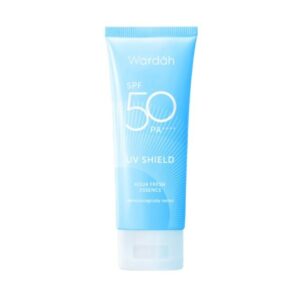
Additionally, with the influx of Chinese brands into the Indonesian market, there is intense competition and pricing pressure as these newcomers regularly offer lower prices to capture market share.
Thus, it is imperative for new brands to effectively communicate their value proposition to their target audience in order to succeed.
Flourishing Indonesian cosmetic industry
Personal care is also the product category that has received the most distribution licenses by BPOM in Indonesia in the last 5 years with an astounding 411,410 products launched on the market.
Cosmetics have been receiving more attention from Indonesian consumers for a while and this is due to several factors.
Key to this is the rise of the middle class with higher purchasing power. Indeed McKinsey & Company forecast that the middle class in Indonesia is on course to grow from 45 million in 2018 to 135 million people by 2030. This represents a significant increase in purchasing power and presents opportunities for businesses to tap into this growing consumer base.
Also, this dynamic focus on personal grooming and appearance has been fuelled by Indonesia’s social media users (over 180 million), making it one of the largest social media markets in the world and providing fertile ground for beauty influencers.
As was the case elsewhere, the COVID-19 pandemic has also boosted demand for cosmetics as consumers in Indonesia are now shopping more than ever before on e-commerce platforms such as Shopee and Tokopedia.
The pandemic has also caused Indonesians to focus more on their health and beauty, resulting in a surge in demand for – safe – cosmetic products.
Paragon Group to the fore
During the pandemic, the Paragon Group launched new cosmetic brands to cater to the changing needs of Indonesian consumers who were spending more time at home and shopping online. The company unveiled brands such as Emina and Putri, which offer affordable and halal-certified cosmetic products designed for younger consumers.
The existing brands of the Paragon Group, like Wardah and Make Over, also expanded their product lines to keep up with market trends and consumer demand.
Overall, the Paragon Group’s focus on launching new and diverse cosmetic brands during the pandemic helped the company to meet the needs of Indonesian consumers while contributing to the growth of the industry, including the Halal products Tavi or Kahf.
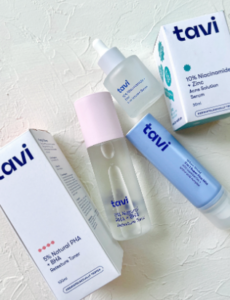
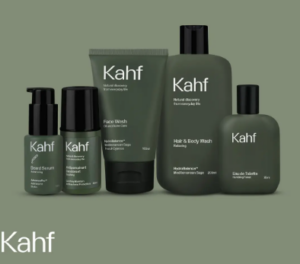
Challenges for R&D
R&D in Indonesia is currently facing several challenges. These include the cautious development of formulations with new textures as companies tend to prioritize watching the market rather than being innovative trendsetters.
Research and development departments often face the test of a balancing act between introducing new textures and living up to market expectation.
The demand for active ingredients to undergo in vivo testing places constraints on R&D’s ability to create new products. The regulatory requirements set by BPOM necessitate extensive testing of active ingredients before they can be incorporated into products, thus limiting R&D’s flexibility to explore innovative formulations.
The tendency to cling to current and past practices can make it challenging for companies to embrace new technologies. Innovation adoption can be hindered by the fear of the unknown and the perceived risks of implementing novel technologies in the industry. It is therefore crucial for companies to maintain a balance between integrating new technologies and adhering to established practices.
New brand strategies – it’s all about identity!
A study by global measurement and data analytics company Nielsen reveals that 59% of consumers prefer to buy new products from brands they are familiar with.
A unique brand that stands out from the competition can create a sense of familiarity and trust with consumers, increasing the likelihood of repeat purchases and brand loyalty. Currently, the variety of cosmetic products in Indonesia is very wide.
Skincare products made from natural ingredients are particularly popular. As an example Sensatia Botanicals and Martha Tilaar make-up products are designed to withstand the hot and humid climate in Indonesia.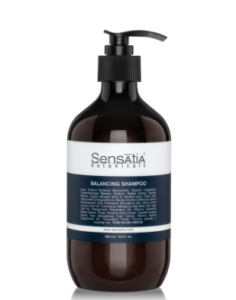
Haircare products cater to different hair types, and fragrance options include traditional Indonesian scents example Herborist and Bali Alus.
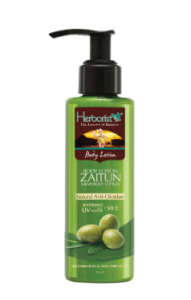
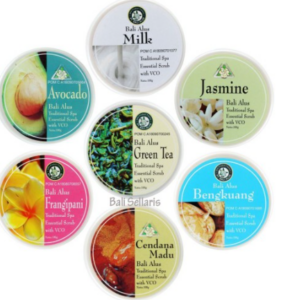
But, for the new brands out there, how easy is it to communicate their unique selling point to ensure better visibility and recall?
Clearly, creating products that are affordable yet high quality, unique and packaged in eye-catching material complete with an attractive logo are a must. But also key is producing a visionary concept.
Wardah’s achievements
Wardah is a popular Indonesian cosmetic brand that focuses on producing halal-certified skincare and make-up products. To successfully deliver its brand to Indonesian consumers, Wardah has obtained halal certification to cater to the needs of Muslim consumers. The company has also kept its products affordable to a wide range of consumers and has relied on Instagram and Facebook to market them to a younger audience.
On the R&D front, Wardah continues to innovate with new product lines boasting natural ingredients, such as seaweed and tea tree oil.
Wardah has also created a positive in-store experience by offering product testers and knowledgeable sales staff.
As a result, Wardah has successfully delivered on its brand promise, gaining popularity among Indonesian consumers who value halal-certified and affordable skincare and make-up products.
Relentless innovation
As we know, innovation is a key factor to capture market share and allow brands to differentiate themselves from their competitors by offering unique solutions to customer needs. Innovative brands can also create a buzz and generate excitement among consumers, leading to increased awareness and customer loyalty.
For a brand to be as successful and innovative as the likes of Apple, Tesla, and Google, the challenge is creating stand-out products for the future and here are a few examples of brands that have done just that in Indonesia.
1. Azarine, known to produce one of the best sunscreens in Indonesia. It also claims to have a lightweight and non-greasy formula, making it comfortable to wear in Indonesia’s hot and humid climate.
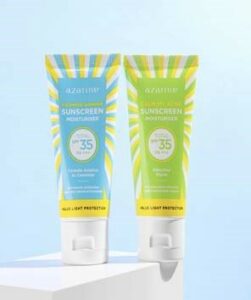
2. Somethinc, for their best seller completed serum. These factors have helped to establish the brand’s reputation for producing safe and effective skincare products, which has contributed to its popularity among consumers.
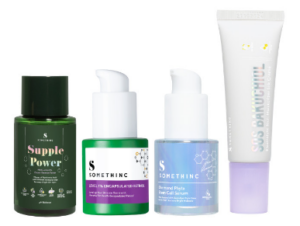
3. Implora, for their affordable yet great quality lip cream. Implora is able to offer affordable and lip creams by using efficient production processes and focusing on key ingredients whilst committing to high quality.
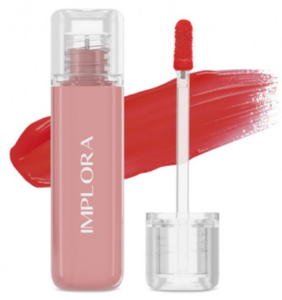
4. Wardah, with their pioneer halal products, creating the Halal cosmetic trend not only in Indonesia but also globally.
As the best selling American author and philanthropist Sarah Ban Breathnach once said “The world needs dreamers and the world needs doers. But above all, what the world needs most is dreamers that do”. Judging by the level of activity and innovation on the Indonesian cosmetics market, the dream is becoming reality….
Enjoyed this article? Get more by subscribing to our newsletter!
Feeling inspired to see ingredients and trends in action?
Then why not visit one of the in-cosmetics events around the world?
